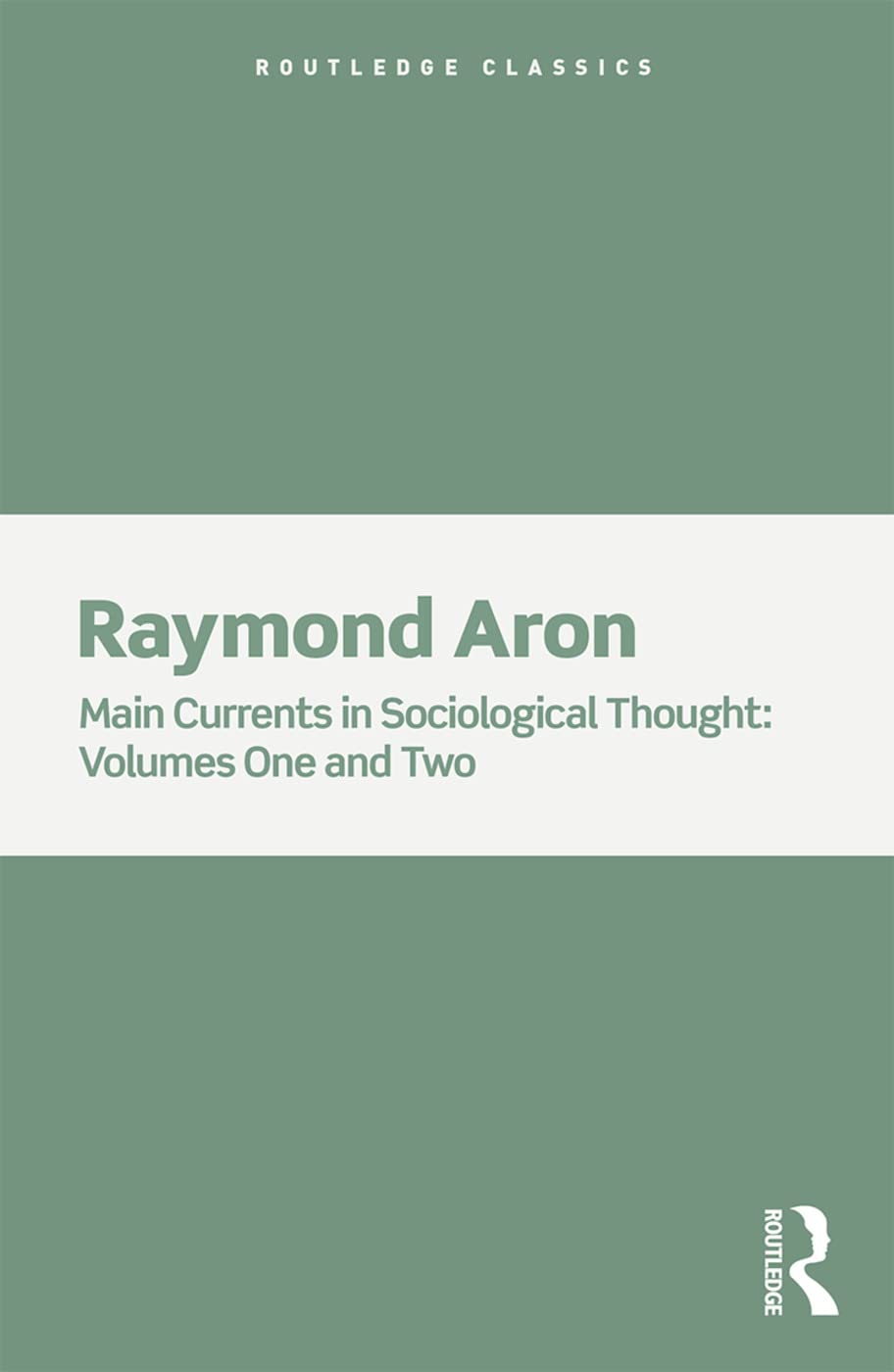
Categorii: Necatalogate, Neclasificate
Limba: Engleza
Data publicării: 2018
Editura: Routledge
Tip copertă: Paperback
Nr Pag: 744

Raymond Aron's classic two-volume study of the sociological tradition is arguably the definitive work of its kind. More than a work of reconstruction, Aron's study is, at its deepest level, an engagement with the question of modernity: What constitutes the essence of the modern order that, having emerged in the eighteenth century, still shapes our experience? With scrupulous fairness, Aron examines the thought and arguments of the major social thinkers in this two volume set.
Volume one explores three traditions: the French liberal school of political sociology, represented by Montesquieu and Tocqueville; the Comtean tradition, anticipating Durkheim in its its elevation of social unity and consensus; and the Marxists, who posited the struggle between classes and placed their faith in historical necessity. Volume two explores the work of three figures who profoundly shaped sociology as it entered the twentieth century: Emile Durkheim, who continued Auguste Comte's quest for a science of society and a scientific validation of morality; Vilfredo Pareto, the Italian "neo-Machiavellian" who emphasized the oligarchic or elitist character of all societies; and the German sociologist Max Weber, who reflected critically on the prospects for human freedom in an age marked by bureaucratization and rationalization.